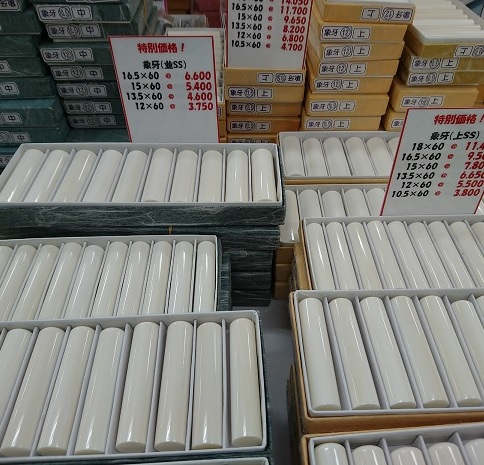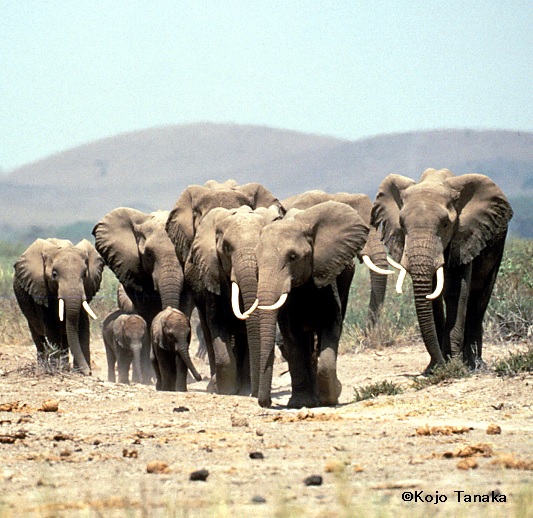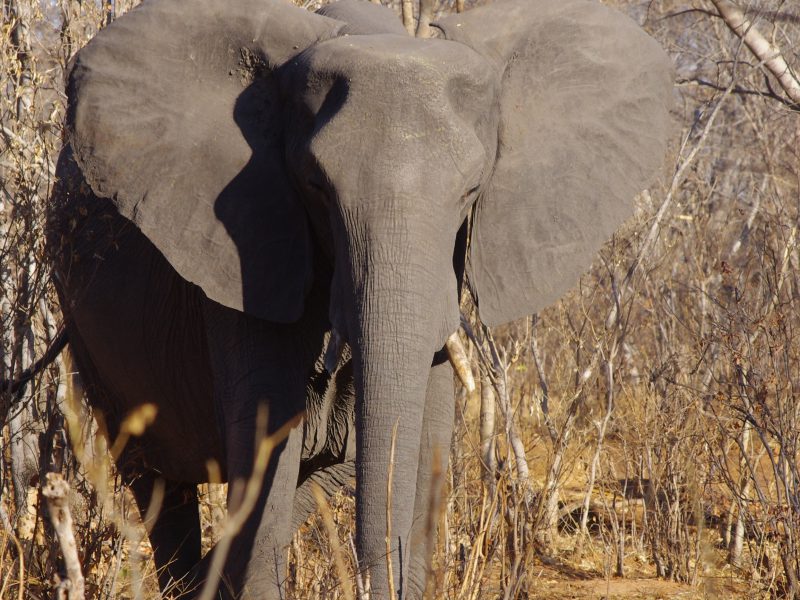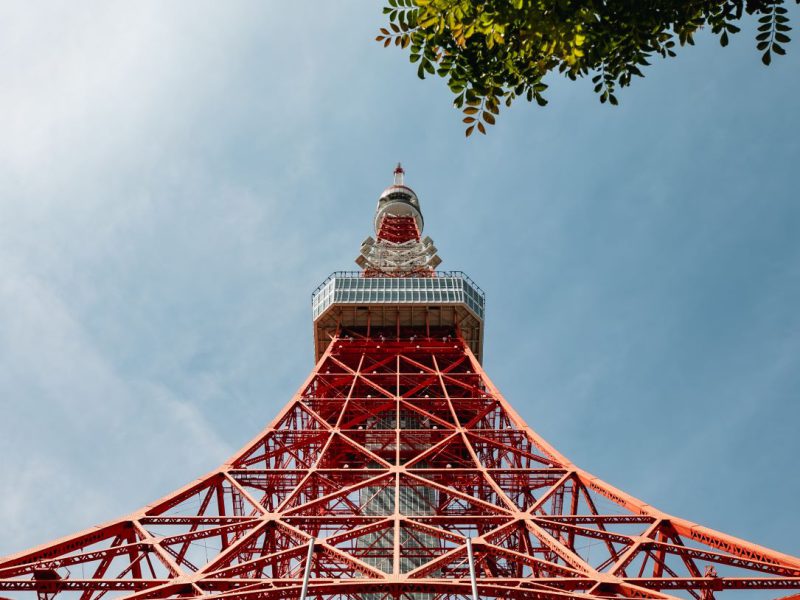
REPORT: Submission of the briefing on TMG’s subsidies to ivory industry to the Governor
https://www.jtef.jp/en/wp-content/uploads/2024/06/hanko-180612.jpg 484 465 Japan Tiger Elephant Organization Japan Tiger Elephant Organization https://www.jtef.jp/en/wp-content/uploads/2024/06/hanko-180612.jpgOn June 11, 2024, JTEF and Environmental Investigation Agency based in Washington D.C. submitted a briefing: “Tokyo Metropolitan Government Subsidies to Ivory Industry Stakeholders” to Tokyo Governor Yuriko Koike (See the summary the briefing on EIA website). It revealed that Tokyo Metropolitan Government’s Bureau of Industrial and Labor Affairs has paid subsidies annually [yearly average of around 4 million JPY (33,000 USD)] to Tokyo’s leading ivory industry association with the goals of igniting the resumption of international ivory trade, increasing the domestic demand for ivory crafts and products, and facilitating the trade in ivory.
Project Examples
- The ivory association described in the application form dated July 5th, 2021: “Currently, Namibia, Zimbabwe, South Africa and Botswana whose president was replaced and policy was changed have elephant populations listed in Appendix II, so that they are the closest to resuming international trade in ivory. Additionally, among the countries including Zambia and Tanzania, which had shown interest in transferring their elephant populations from Appendix I to Appendix II (downlisting), Zambia which submitted a proposal to downlist its elephants to Appendix II and resume ivory trade at CoP18. Therefore, we will conduct the investigation, specifically, in preparation for CoP19 and beyond to obtain the latest information on African elephants in southern African countries that share the same position as Japan, as well as understand in advance the thoughts and stances of these countries regarding this CITES matter, and provide support to these countries”.
- As described in the ivory association’s application form dated October 12th, 2018: “these events will help general consumers understand what is CITES, increase their interest in and desire to purchase ivory crafts; an expansion of demand will stabilize and develop the business of ivory dealers in Tokyo.” The Association also argues that “Furthermore, as demand expands, we can expect ivory imports from countries other than those that we had imported ivory from through the decision of CITES CoP, making further progress towards securing raw materials”.
However, TMG’s support to increase ivory demand for ivory crafts and products is noncompliant with a CITES Resolution, ignoring efforts by the international community and the private sector in Japan, and moreover, contradictory to TMG’s new approach on ivory trade. Since January 2020, Tokyo’s Governor committed to undertaking an assessment of Tokyo’s ivory trade, and the Advisory Council, which was established by her and conducted the assessment, made a recommendation to consider an ordinance banning ivory sales without some exemptions.
The briefing include recommendations including urging to stop any issuance of subsidies for projects aiming to help resume international trade in ivory, increase domestic demand for ivory crafts and products, or facilitate the trade in ivory as a matter of urgency, and to enact an ordinance to close the ivory market in Tokyo with only narrow exemptions. We requested a written response to the recommendations included in the briefing by June 28, 2024. Unfortunately, TMG told JTEF that it needs more time to give a specific response to the recommendations.
Background
- The international commercial trade in ivory was banned in 1989 by the Convention on International Trade in Endangered Species of Wild Fauna and Flora (CITES) in response to a mass poaching crisis. Prior to the international trade ban, Japan was the world’s largest consumer of ivory.
- Japan is the only country to have received ivory twice after the international ivory trade ban went into effect in 1990, importing auctioned ivory from southern African nations in a CITES-approved sale in 1999, and then again in 2009. The ivory imported into Japan was monopolized by leading ivory associations in Tokyo and Osaka.
- In 2016, in response to another poaching crisis, CITES Parties adopted a revised resolution by consensus, recommending that all countries with legal domestic ivory markets that contribute to poaching or illegal trade close them urgently.[1] The main goal is to prevent legal markets from creating an opportunity to launder illegal ivory under the guise of legality,[2] and to reduce the risk that ivory items acquired in a country with a legal market and exported to third countries could fuel the demand for illegal ivory items, undermining enforcement and demand reduction activities.[3] Japan joined that consensus.
- Japan is an outlier in the global community, with thousands of government-registered ivory traders, an industry that continues to manufacture ivory products. Furthermore, there is evidence that such active legal domestic trade is linked to the illegal international trade.[4] However, Japan’s market remains open.[5]
- In response to an international appeal, in January 2020, Tokyo’s Governor committed to undertaking an assessment of Tokyo’s ivory trade, and established an Advisory Council composed of experts to make recommendations on steps Tokyo should take.
- After two years of deliberations, the Advisory Council released a report with its official recommendations in March 2022. The Council’s recommendations to the Tokyo Metropolitan Government (TMG) include that the Tokyo government should consider legal measures to address trade in ivory.[6]
- However, the TMG administration has not acted to implement the recommendation to consider legal measures since the release of the report.
[1] Res. Conf. 10.10 (Rev. CoP19), paragraph 3 https://cites.org/sites/default/files/documents/COP/19/resolution/E-Res-10-10-R19.pdf
[2] CoP17 Doc. 27 “ACTIONS TO COMBAT WILDLIFE TRAFFICKING” submitted by the US
[3] CITES SC74 Doc.39 Annex 2 submitted by the EU
[4] EIA. (December 2020) Japan’s Illegal Ivory Exports. https://us.eia.org/campaigns/wildlife/elephants/japan-ivory/
Sakamoto M. 2022. Smugglers’ Source: Japan’s Legal Ivory Market; An Analysis of Chinese Court Decisions of Ivory Illegally Exported from Japan. Japan Tiger and Elephant Fund
[5] EIA&JTEF. 2023. Reality Check: Japan’s Legal Domestic Ivory Market
[6] Report of Advisory Council on Regulation of Ivory Trade (March 2022) https://www.seisakukikaku.metro.tokyo.lg.jp/cross-efforts/2022/09/images/Zouge_Report_ENG.pdf







Leave a Reply